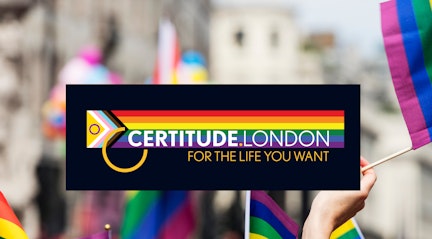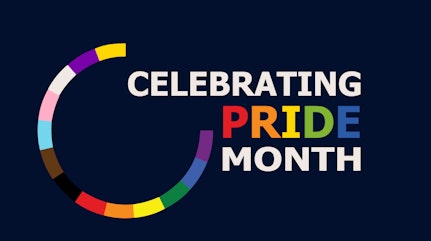Celebrating allyship
-
Blogs

This Pride month we’re sharing our top tips on how to be a great LGBTQ+ ally.
As an organisation that believes in equal and fair treatment for people, we understand the importance of great allies.
Pamela Sinnot, Certitude's Diversity and Inclusion Business Partner, explains further “Allies are critical in creating welcoming and inclusive environments, ensuring we all understand the importance of equality, fairness, acceptance, and mutual respect.”
As well as joining partners Choice Support and Rainbow Friends London to walk together alongside people we support in the London Pride Parade this year, we are sharing allyship top tips to remind us all how we can continue to contribute to a just and equitable society.
How to be a great LGBTQ+ ally
1. Educate yourself
- Learn about LGBTQ+ issues: Find out about the history, challenges, and experiences of people.
- Understand ‘intersectionality’: Recognise that LGBTQ+ identities intersect with other aspects of identity, such as race, gender, disability and class, leading to varied experiences.
2. Use inclusive language
- Respect pronouns and names: Use the correct names and pronouns for everyone, and if you’re not sure, politely ask.
- Avoid assumptions: Don’t make assumptions about someone’s gender, sexual orientation, or relationship status.
3. Stand up against discrimination
- Challenge homophobia and transphobia: Speak out against derogatory comments, jokes, or any form of discrimination, even if it’s uncomfortable.
4. Publicly support LGBTQ+ rights
- Attend LGBTQ+ events: Participate in Pride events, marches, and other LGBTQ+ gatherings to show support.
- Amplify LGBTQ+ voices: Use your platform to elevate the people’s voices and share resources and information that promote equality.
5. Create safe spaces
- Create inclusive environments: Ensure that spaces you control are welcoming to everybody.
- Listen without judgment: Be a supportive listener when people share their experiences, offering empathy rather than solutions unless asked.
6. Reflect and acknowledge privilege
- Recognise ally privilege: Acknowledge the privileges you may have and understand that being an ally means using that privilege to support people’s rights.
- Be humble and open to feedback: Accept that you may make mistakes and be open to learning from them without becoming defensive.
7. Be consistent
- Commit to long-term support: being an ally is an ongoing responsibility, not a one-time action.
8. Advocate for mental health support
- Promote access to resources: Encourage access to mental health services that are inclusive and supportive of everyone.
- Recognise the impact of discrimination: Understand how discrimination affects people's mental health advocate for systemic changes to reduce these impacts.
